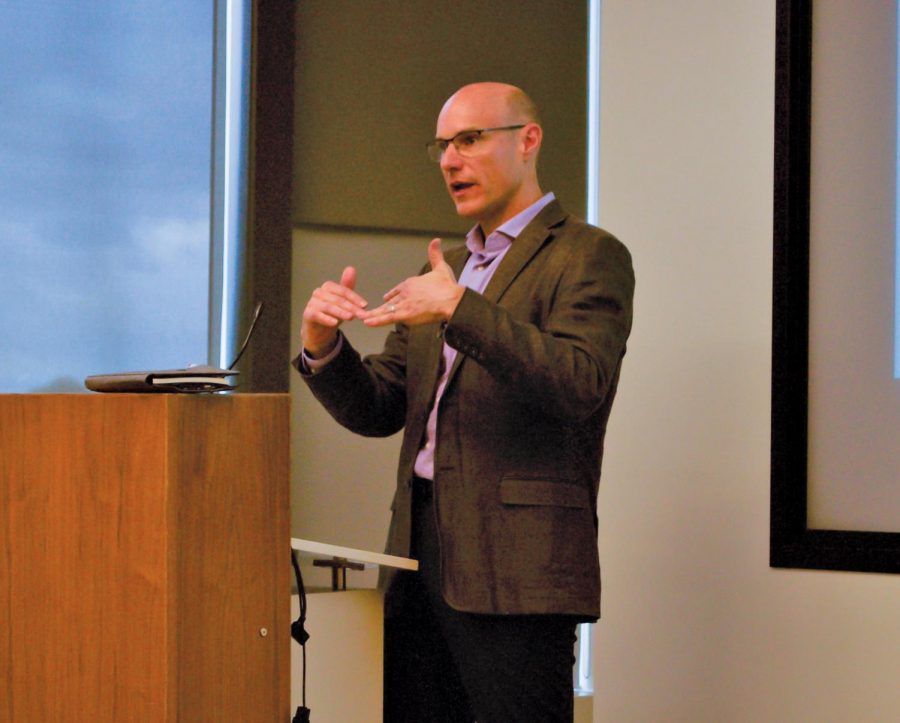SEU alumni speaks out about injustices in the criminal justice system
Smith explains how a prison provided melted ice in cups of water to avoid a lawsuit due to lack of air conditioning in the Texas heat. Prisons could reach up to 120 degrees.
Senior Policy Analyst for the Texas Criminal Justice Coalition (TCJC), Douglas Smith, challenged his audience on Thursday Oct.17 to imagine a world without police officers or prisons.
Smith, a St. Edward’s alumni and formerly incarcerated person, spoke on his six year experience in prison and how the United States currently resides in an era of mass incarceration.
“Our minds rebel against this idea that we would live in a world without prisons, that we would live in a world without police officers,” Smith said. “In fact when I’m saying this right now, I bet a lot of you are thinking, what if? What if it was something that happened to my family member?”
Smith has been a part of TCJC since 2015, creating policies to reduce incarceration rates in Texas and aid in the reentry process after prison.
Smith describes the reasoning behind this era of mass incarceration as a means of controlling constituencies as well as policing people of color. He explains how it is “no coincidence” that the era of mass incarceration began after the Voting Rights Act of 1965. The county in which Smith was incarcerated boasted 30% of its adult population incarcerated. Therefore, 30% of the population counted in the district, but were not being represented.
Alycia Castillo, an audience member and policy consultant at the TCJC, described the criminal justice system as having fractures. Castillo, a Mexican-American, explained her personal experiences with the system disproportionately targeting people of color.
“I’ve seen all the men in my family, essentially, be directly impacted,” Castillo said.
Smith is also a part of the Texas Department of Criminal Justice Reentry Task Force, aiding those in the process of leaving prison and preventing recidivism. He serves as treasurer on the board of directors at the Austin Sobering Center and teaches Advanced Policy at the University of Texas.
Smith emphasized the need for people to care. In regards to imagining a world without prisons or police officers, he explains, “the one thing I’m not going to do is tell you what that should look like. That responsibility is not actually with me, that responsibility is with you all.”
He spoke on how the systems in prison for helping those with mental health ailments were nonexistent. People on psychotropic medications were not allowed to have prison jobs. It was only after leaving prison that Smith found a supportive community and acquired health insurance, thus his mental health recovery began.
Ashlyn Branscum, a St. Edward’s student and intern at the TCJC, described Smith’s views as being important for what she hopes to accomplish as a social work major.
“It’s like he said, all of these people are just people, they’re not offenders, they’re not criminals,” she said.
Smith’s reentry process described a scenario that many are not graced with after leaving prison. He found a loving community, a job, a place to live, and health insurance to conquer his mental health and substance use.
He left students with a remark about the system, “That’s how you help someone recover. Prison has zero to do with that.

Hey y'all! My name is Gracie Watt and I am a junior majoring in communication with a focus in journalism. I'm proud to be the Photo Editor for Hilltop...







